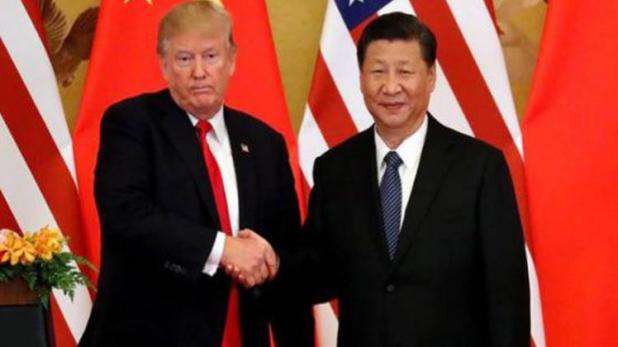US, China agree to trade war ceasefire, more talks

Agency
December 02, 2018

BUENOS AIRES – US President Donald Trump and China's Xi Jinping agreed Saturday to suspend any new tariffs in the escalating trade war between the world's two largest economies, even if huge existing duties will remain in place.
Following more than two hours of dinner talks between the two leaders, the White House said an increase of tariffs from 10 to 25 percent due to kick in on January 1 would now be put on hold, providing room for intense negotiations.
The agreement, hashed out over steak in the Argentine capital Buenos Aires, lowers the temperature in a conflict that has spooked world markets.
The two leaders, who were in Buenos Aires for a summit of the G20 countries, called it "a highly successful meeting," the White House said.
"The principal agreement has effectively prevented further expansion of economic friction between the two countries and has opened up new space for win-win cooperation," said Chinese Foreign Minister Wang Yi.
- Partial truce -
Under the agreement, Trump is shelving a plan to raise existing tariffs of 10 percent to 25 percent from the start of next year.
However, the truce is only partial. Some $50 billion worth of Chinese imports already face 25 percent tariffs while the 10 percent tariffs, which target a massive $200 billion in goods, will also remain in effect.
Meanwhile, China has targeted $110 billion worth of US imports for tariffs. If there is any further retaliation, Trump has warned, he will slap punitive duties on the remaining $267 billion in Chinese goods coming to the United States.And Saturday's truce also contained an ultimatum.
The White House made clear that the 10 percent tariffs would still leap up to 25 percent if China doesn't meet US demands in 90 days.
These include China stopping a host of trade barriers, intellectual property theft and other actions that Washington say make fair trade impossible.Tough negotiations lie ahead, but Trump was upbeat.
"This was an amazing and productive meeting with unlimited possibilities for both the United States and China. It is my great honor to be working with President Xi," he said in a statement.
- Steaks and high stakes -
Trump and Xi expressed optimism the moment they and top aides sat down in Buenos Aires at a long hotel table adorned with flowers.
"Only with cooperation between us can we serve the interest of both peace and prosperity," Xi said.
The meeting -- featuring a menu of sirloin steak, caramel rolled pancakes and Argentine wine -- went on longer than scheduled.
And while it may have been tacked on to the end of two days of G20 diplomacy, it was in many ways the main event of the weekend.
German Chancellor Angela Merkel, who was also attending the G20, spoke for many when she urged progress.
"We all realize that we are indirectly influenced by the fact that Sino-American economic relations are not running as smoothly as a world order needs," she said.
- Personal chemistry factor -
On the US side at the dinner, Trump was accompanied by advisers such as Larry Kudlow and Treasury Secretary Steven Mnuchin, who are widely seen as wanting a deal.
But hawkish advisers like Peter Navarro and US Trade Representative Robert Lighthizer were also present. Navarro's inclusion in particular was a surprise as he has harshly criticized China, accusing its leadership of duplicity.
Trump, as often in his diplomatic dealings, appears to consider his personal chemistry with Xi the most important factor in the success of the negotiations.
He has prided himself on building a good relationship with the Chinese leader, even though he acknowledges it may have trouble surviving the growing crisis.
"He may not be a friend of mine anymore but I think he probably respects me," Trump said in September.
At the dinner, however, he was more upbeat, saying that his ties to Xi were "a very primary reason" for considering a deal possible.
---


Leave Comment